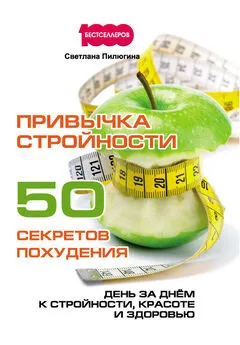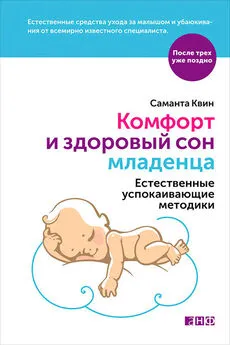Федон Линдберг - X-фактор здорового веса. Как добиться естественной стройности, позаботившись о кишечнике
- Название:X-фактор здорового веса. Как добиться естественной стройности, позаботившись о кишечнике
- Автор:
- Жанр:
- Издательство:Эксмо
- Год:2022
- Город:Москва
- ISBN:978-5-04-162122-3
- Рейтинг:
- Избранное:Добавить в избранное
-
Отзывы:
-
Ваша оценка:
Федон Линдберг - X-фактор здорового веса. Как добиться естественной стройности, позаботившись о кишечнике краткое содержание
В этой книге содержится подробная информация, как именно это происходит, а также инструкции, как влиять на состав микрофлоры, чтобы она поддерживала ваш здоровый вес.
Внимание! Информация, содержащаяся в книге, не может служить заменой консультации врача. Перед совершением любых рекомендуемых действий необходимо проконсультироваться со специалистом.
В формате PDF A4 сохранен издательский макет книги.
X-фактор здорового веса. Как добиться естественной стройности, позаботившись о кишечнике - читать онлайн бесплатно ознакомительный отрывок
Интервал:
Закладка:
125. McCaig LF, Besser RE, Hughes JM. Trends in antimicrobial prescribing rates for children and adolescents. JAMA 2002 Jun 19;287(23): 3096–102
126. Hersh AL, Shapiro DJ, Pavia AT, Shah SS. Antibiotic prescribing in ambulatory pediatrics in the United States. Pediatrics 2011 Dec;128(6): 1053–61
127. Barnett ML, Linder JA. Antibiotic prescribing for adults with acute bronchitis in the United States, 1996–2010. JAMA 2014 May 21;311(19):2020–2
128. Barnett ML, Linder JA. Antibiotic prescribing to adults with sore throat in the United States, 1997–2010. JAMA Intern Med. 2014 Jan;174(1):138–40
129. Nyquist AC, Gonzales R, Steiner JF, Sande MA. Antibiotic prescribing for children with colds, upper respiratory tract infections, and bronchitis. JAMA 1998 Mar 18;279(11):875–7
130. Folkehelseinstituttet. «Rester av legemidler i mat». https://www.fhi.no/nettpub/mihe/mat/052.-rester-av-legemidler-i-mat/
131. Norsk Vann. «Hvordan kan medisiner påvirke miljøet?» http://norskvann.no/index.php/10-nyheter/1133-hvordan-kan-medisiner-pavirke-miljoet
132. Riley LW, Raphael E, Faerstein E. Obesity in the United States – dysbiosis from exposure to low-dose antibiotics? Front Public Health. 2013 Dec 19;1:69
133. Ternak G. Antibiotics may act as growth/obesity promoters in humans as an inadvertent result of antibiotic pollution? Med Hypotheses. 2005;64(1):14–6
134. Jukes TH. Public health significance of feeding low levels of antibiotics to animals. Adv Appl Microbiol. 1973;16:1–54. Review
135. Gaskins HR, Collier CT, Anderson DB. Antibiotics as growth promotants: mode of action. Anim Biotechnol. 2002 May;13(1):29–42. Review
136. Ranberg, P.O. Bruker minst antibiotika i matproduksjon. http://www.bondelaget.no/husdyrproduksjon/bruker-minst-antibiotika-i-matproduksjon-article76618-202.html
137. Bailey MT, Dowd SE, Galley JD, Hufnagle AR, Allen RG, Lyte M. Exposure to a social stressor alters the structure of the intestinal microbiota: implications for stressor-induced immunomodulation. Brain Behav Immun. 2011 Mar;25(3):397–407
138. Bailey MT. Influence of stressor-induced nervous system activation on the intestinal microbiota and the importance for immunomodulation. Adv Exp Med Biol. 2014;817:255–76
139. Galley JD, Nelson MC, Yu Z, Dowd SE, Walter J, Kumar PS, Lyte M, Bailey MT. Exposure to a social stressor disrupts the community structure of the colonic mucosa-associated microbiota. BMC Microbiol. 2014 Jul 15;14:189
140. Lizko NN. Stress and intestinal microflora. Nahrung 1987;31(5–6):443–7
141. Eutamene H, Bueno L. Role of probiotics in correcting abnormalities of colonic flora induced by stress. Gut 2007 Nov;56(11):1495-7
142. Eutamene H, Lamine F, Chabo C, Theodorou V, Rochat F, Bergonzelli GE, Corthésy-Theulaz I, Fioramonti J, Bueno L. Synergy between Lactobacillus paracasei and its bacterial products to counteract stress-induced gut permeability and sensitivity increase in rats. J Nutr. 2007 Aug;137(8):1901–7
143. Logan AC, Katzman M. Major depressive disorder: probiotics may be an adjuvant therapy. Med Hypotheses 2005;64(3):533–8
144. Söderholm JD, Perdue MH. Stress and gastrointestinal tract. II. Stress and intestinal barrier function. Am J Physiol Gastrointest Liver Physiol. 2001 Jan;280(1):G7-G13. Review
145. Ait-Belgnaoui A, Durand H, Cartier C, Chaumaz G, Eutamene H, Ferrier L, Houdeau E, Fioramonti J, Bueno L, Theodorou V. Prevention of gut leakiness by a probiotic treatment leads to attenuated HPA response to an acute psychological stress in rats. Psychoneuroendocrinology 2012 Nov;37(11):1885–95
146. Aseeri M, Schroeder T, Kramer J, Zackula R. Gastric acid suppression by proton pump inhibitors as a risk factor for clostridium difficile-associated diarrhea in hospitalized patients. Am J Gastroenterol. 2008 Sep;103(9):2308–13
147. Dial S, Delaney JA, Schneider V, Suissa S. Proton pump inhibitor use and risk of community-acquired Clostridium difficile-associated disease defined by prescription for oral vancomycin therapy. CMAJ. 2006 Sep 26;175(7):745–8
148. Valuck RJ, Ruscin JM. A case-control study on adverse effects: H2 blocker or proton pump inhibitor use and risk of vitamin B12 deficiency in older adults. J Clin Epidemiol. 2004 Apr;57(4):422–8
149. SIBO info. What is SIBO, overview and treatment options
150. http://www.siboinfo.com/overview.html
151. http://www.siboinfo.com/overview1.html
152. http://www.siboinfo.com/herbal-antibiotics.html
153. http://www.siboinfo.com/diet.html
154. Peralta S, Cottone C, Doveri T, Almasio PL, Craxi A. Small intestine bacterial overgrowth and irritable bowel syndrome-related symptoms: Experience with Rifaximin. World Journal of Gastroenterology: WJG. 2009;15(21):2628–2631. doi:10.3748/wjg.15.2628
155. Lin HC. Small Intestinal Bacterial Overgrowth. A Framework for Understanding Irritable Bowel Syndrome. JAMA. 2004;292(7):852–858
156. Pimentel M, Park S, Mirocha J, Kane SV, Kong Y. The effect of a non-absorbed oral antibiotic (rifaximin) on the symptoms of the irritable bowel syndrome: a randomized trial. Ann Intern Med. 2006 Oct 17;145(8):557–63
157. SIBO: The Finer Points Of Diagnosis, Test Interpretation, And Treatment. http://ndnr.com/gastrointestinal/sibo/
158. Husebye E. The patterns of small bowel motility: physiology and implications in organic disease and functional disorders. Neurogastroenterol Motil.1999 Jun;11(3):141–161
159. Bures J, Cyrany J, Kohoutova D, et al. Small intestinal bacterial overgrowth syndrome. World Journal of Gastroenterology: WJG. 2010;16(24):2978–2990. doi:10.3748/wjg. v16.i24.2978
160. Pyleris E, Giamarellos-Bourboulis EJ, Tzivras D, Koussoulas V, Barbatzas C, Pimentel M. The prevalence of overgrowth by aerobic bacteria in the small intestine by small bowel culture: relationship with irritable bowel syndrome. Dig Dis Sci. 2012 May;57(5):1321–9
161. Singh VV, Toskes PP. Small Bowel Bacterial Overgrowth: Presentation, Diagnosis, and Treatment. Curr Treat Options Gastroenterol. 2004 Feb;7(1):19–28
162. Elsenbruch S. Abdominal pain in Irritable Bowel Syndrome: a review of putative psychological, neural and neuro-immune mechanisms. Brain Behav Immun. 2011 Mar;25(3):386–94
163. Pimentel M, Mayer AG, Park S, Chow EJ, Hasan A, Kong Y. Methane production during lactulose breath test is associated with gastrointestinal disease presentation. Dig Dis Sci. 2003 Jan;48(1):86–92
164. Pimentel M, Lin HC, Enayati P, van den Burg B, Lee HR, Chen JH, Park S, Kong Y, Conklin J. Methane, a gas produced by enteric bacteria, slows intestinal transit and augments small intestinal contractile activity. Am J Physiol Gastrointest Liver Physiol. 2006 Jun;290(6):G1089–95
165. Chatterjee S et al. The degree of breath methane production in IBS correlates with the severity of constipation. Am J Gastroenterol.2007 Apr;102(4):837–841
166. DiBaise JK. Nutritional consequences of small intestinal bacterial overgrowth. PracGastroenterol. 2008;69:15–28
167. Pimentel M. A New IBS Solution. Sherman Oaks, CA: Health Point Press; 2006
168. Pimentel M, Morales W, Lezcano S, Sun-Chuan D, Low K, Yang J. Low-dose nocturnal tegaserod or erythromycin delays symptom recurrence after treatment of irritable bowel syndrome based on presumed bacterial overgrowth. Gastroenterol Hepatol (NY). 2009 Jun;5(6):435–42
169. Husebye, E. «Bakteriell overvekst i klinisk perspektiv». http://gastroenterologen.no/2012/05/bakteriell-overvekst-i-klinisk-perspektiv/
170. Johnson, S. «Lav FODMAP diet for deg med irritabel tarm». http://ernaeringsportalen.no/2014/lav-fodmap-for-deg-med-irritabel-tarm/
171. Ardatskaia MD, Loginov VA, Minushkin ON. Syndrome of bacterial overgrowth in patients with reduced stomach acid secretion: some aspects of the diagnosis. Eksp Klin Gastroenterol. 2014;(12):30–6
172. Lo WK, Chan WW. Proton pump inhibitor use and the risk of small intestinal bacterial overgrowth: a meta-analysis. Clin Gastroenterol Hepatol. 2013 May;11(5):483–90
173. Chedid V, Dhalla S, Clarke JO, Roland BC, Dunbar KB, Koh J, Justino E, Tomakin E, Mullin
174. GE. Herbal therapy is equivalent to rifaximin for the treatment of small intestinal bacterial overgrowth. Glob Adv Health Med. 2014 May;3(3):16–24
175. Biagi, E. et al. Ageing and gut microbes: Perspectives for health maintenance and longevity: http://www.sciencedirect.com/science/article/pii/S1043661812001922
176. Mitsuoka T. Intestinal flora and human health. Asia Pac J Clin Nutr. 1996 Mar;5(1):2–9
177. Woodmansey EJ. Intestinal bacteria and ageing. J Appl Microbiol. 2007 May;102(5):1178–86. Review
178. Tiihonen K, Ouwehand AC, Rautonen N. Human intestinal microbiota and healthy ageing. Ageing Res Rev. 2010 Apr;9(2):107–16. doi: 10.1016/j.arr.2009.10.004. Epub 2009 Oct 27. Review
179. He F, Ouwehand AC, Isolauri E, Hosoda M, Benno Y, Salminen S. Differences in composition and mucosal adhesion of bifidobacteria isolated from healthy adults and healthy seniors. Curr Microbiol. 2001 Nov;43(5):351–4
180. Weight-control Information Network. Overweight and Obesity Statistics. Bethesda, MD: National Institute of Diabetes and Digestive Kidney Diseases; October 2012
181. Ogden CL, Carroll MD. Prevalence of overweight, obesity, and extreme obesity among adults: United States, trends 1960–1962 through 2007–2008. Atlanta, GA: National Center for Health Statistics, Centers for Disease Control and Prevention; June 2010
182. Flegal KM, Carroll MD, Kit BK, Ogden CL. Prevalence of obesity and trends in the distribution of body mass index among U.S. adults, 1999–2010. JAMA. 2012 Feb;307(5):491–497
183. Wilding BC, Curtis K, Welker-Hood K. Hazardous Chemicals in Health Care: A Snapshot of Chemicals in Doctors and Nurses. Washington, DC: Physicians for Social Responsibility; 2009
184. Centers for Disease Control and Prevention, National Center for Environmental Health. Fourth National Report on Human Exposure to Environmental Chemicals. Atlanta, GA: Centers for Disease Control and Prevention; 2009
185. Committee on National Monitoring of Human Tissues, Board on Environmental Studies and Toxicology, National Research Council. Monitoring Human Tissues for Toxic Substances. Washington, DC: The National Academies Press, 1991
186. Kutz FW, Strassman SC, Sperling JF. Survey of selected organochlorine pesticides in the general population of the United States: Fiscal years 1970–1975. Ann N Y Acad Sci.1979 May 31;320:60–68
187. Strassman SC, Kutz FW. Trends of organochlorine pesticide residues in human tissue. In: Khan MAQ, Stanton RH eds. Toxicology of Halogenated Hydrocarbons: Health & Ecological Effects. New York: Pergamon Press; 1981
188. Environmental Working Group. Body Burden – The Pollution in Newborns. Washington, DC: Environmental Working Group; July 2005
189. Baillie-Hamilton PF. Chemical toxins: a hypothesis to explain the global obesity epidemic. J Altern Complement Med. 2002 Apr;8(2):185–192
190. Blumberg B, Grün F. Environmental obesogens: organotins and endocrine disruption via nuclear receptor signaling. Endocrinology 2006 Jun;147(6 Suppl):S50–S55
191. Heindel JJ. Endocrine disruptors and the obesity epidemic. Toxicol Sci. 2003 Dec;76(2):247–249
192. Holtcamp W. Obesogens: Environmental link to obesity? Environ Health Perspect. 2012 Feb;120(2):a62–a68
193. Newbold RR, Padilla-Banks E, Snyder RJ, Jefferson WN. Perinatal exposure to environmental estrogens and the development of obesity. Mol Nutr Food Res. 2007;51:912–917
194. Toschke AM, Koletzko B, Slikker Jr W, Hermann M, von Kries R. Childhood obesity is associated with maternal smoking in pregnancy. Eur J Pediatr. 161:445–448.
Читать дальшеИнтервал:
Закладка:










